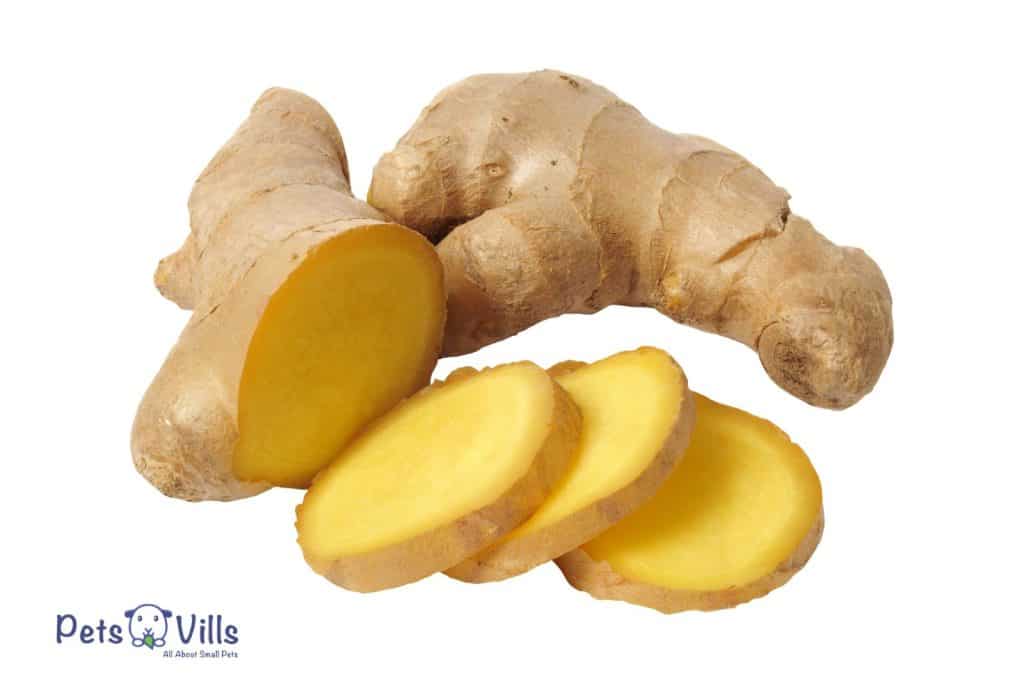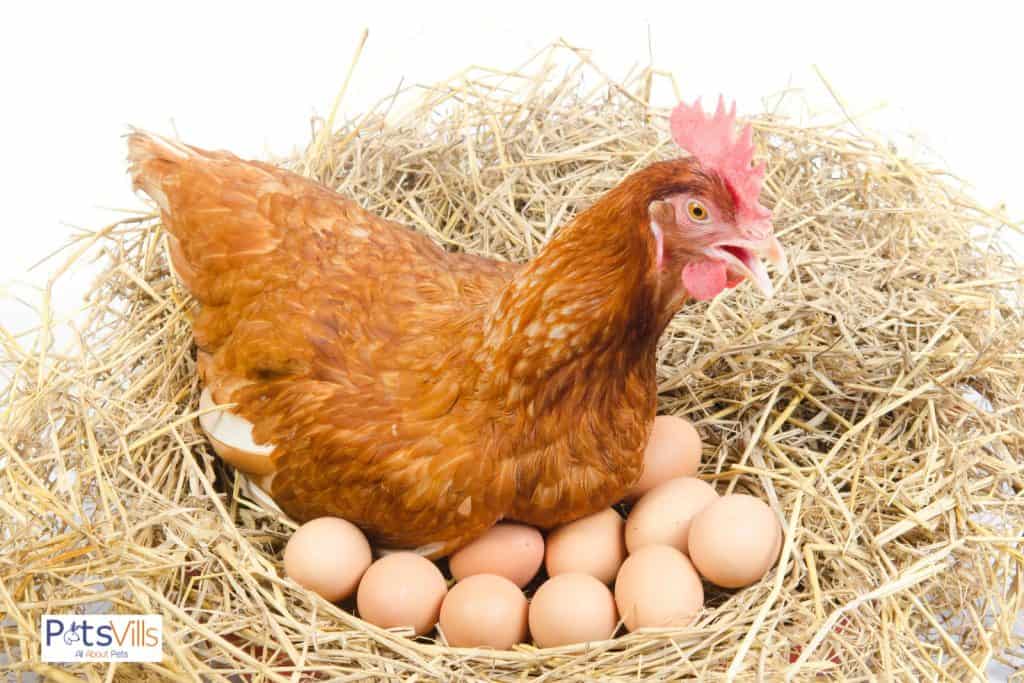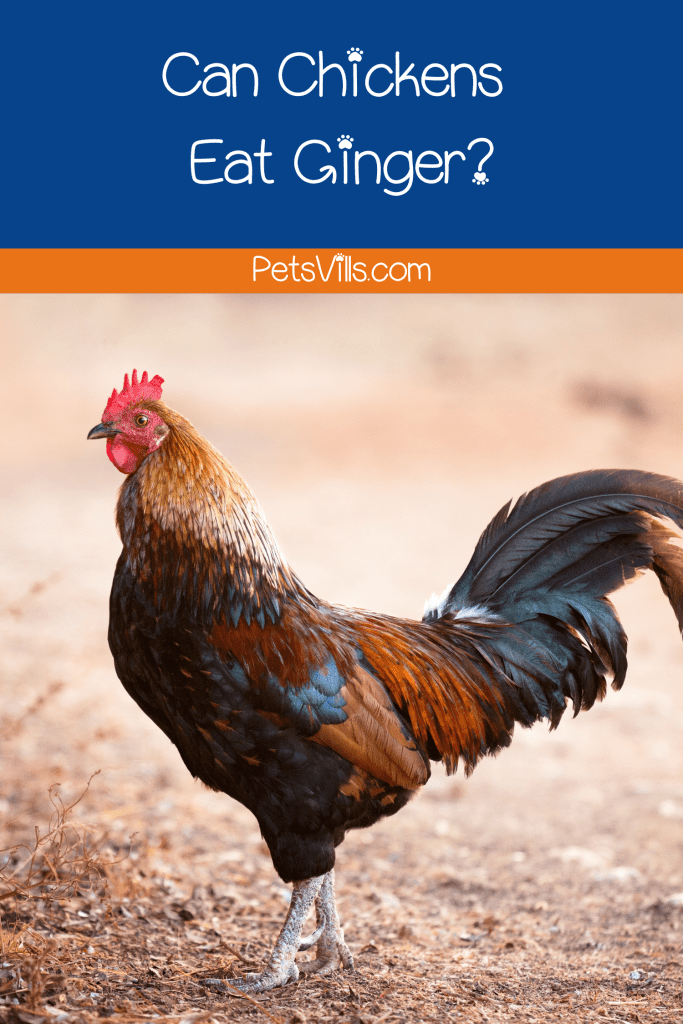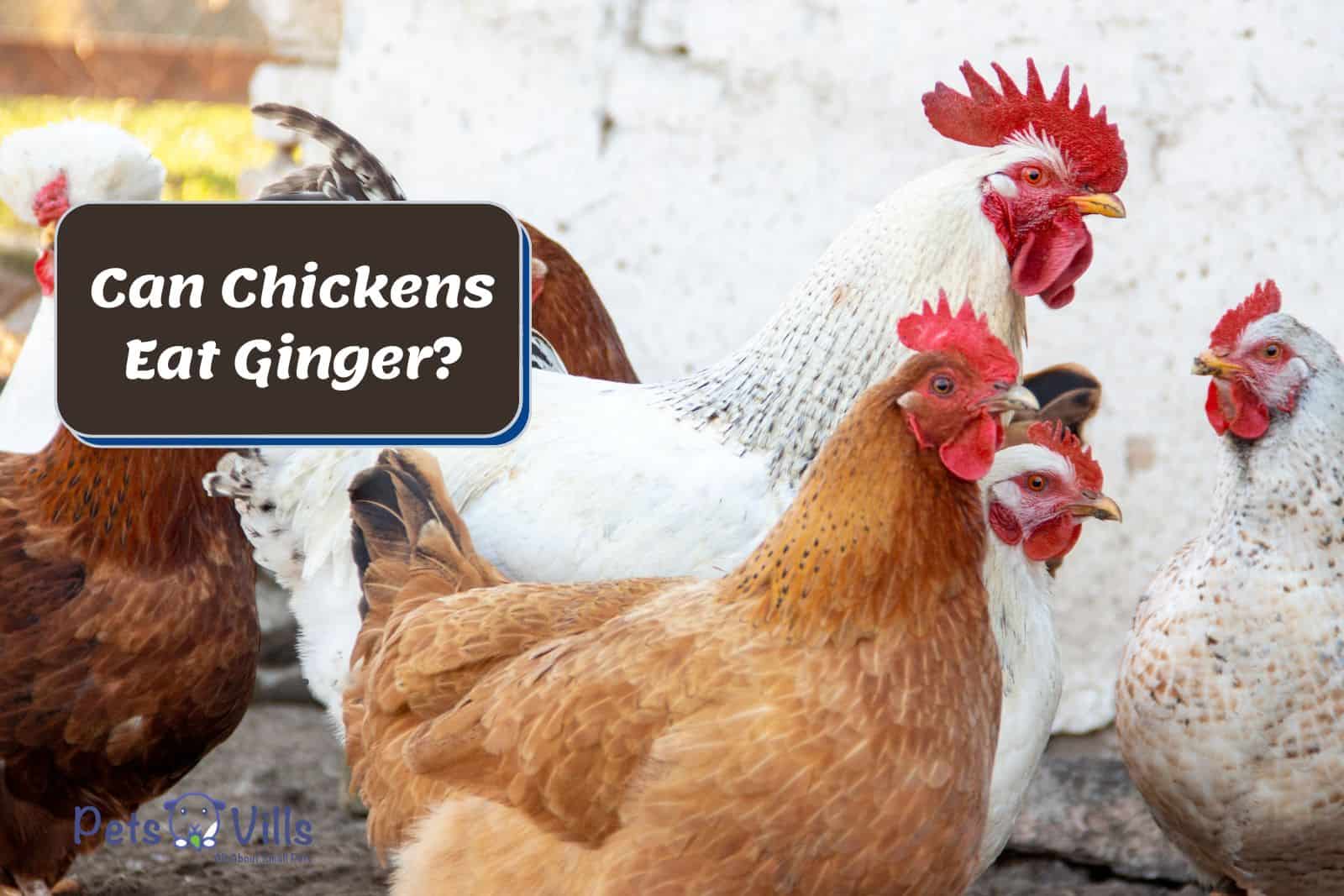Wondering, “Can chickens eat ginger?” You’re not alone ― here’s the truth:
YES, they can!
A herb high in antioxidants, ginger is an herb that’s great for feeding chickens and offers various nutritional benefits.
Now, If you’re as excited as I am, keep reading about how to feed ginger to your chickens…
Table of Contents
Key Takeaways
- Ginger is an excellent choice for feeding your chickens as a feed additive or as an occasional treat.
- Ginger packs a hearty delight full of various nutrients, vitamins, and fiber.
- You can grind or dice the ginger however way you choose!
What Is Ginger?
Ginger is a superfood that’s packed with vitamins and minerals. It’s mainly used as a spice in recipes to make food more flavorful.

To tackle pesky problems like vomiting and digestive issues, ginger proved an excellent tool for Chinese Traditional Medicine and is still used in various ways ― for medicine, health, and taste [1].
If you don’t believe me, hear what Nutrition expert Rachael Link from Dr. Axe has to say about ginger [2]:
“With its zesty, peppery flavor and its extensive list of health benefits, ginger root is equal parts delicious and nutritious.“
Besides food, ginger can be used in beverages, desserts, or salads. So, some people will have them stored at home.
Because of this root’s pluses, you may wonder if “chickens can eat ginger” if you have chickens.
You may also struggle to convince yourself of nature’s delight. To tackle this problem, I’ve included an excellent video for you to check out:
Health Benefits of Ginger for Chickens
Ginger is known as a superfood due to its many health benefits. While ginger benefits many things for humans, chickens can benefit from it too.
Ginger is loaded with vitamins and minerals to meet the chicken’s dietary requirements.
To give you an idea, 1 tablespoon of fresh ginger has [3]:
- 5 calories
- 1 gram (g) of carbohydrate
- 0.1 g of dietary fiber
- 0.1 g of protein
- 0.05 g fat
- 0.1 g of sugar
Besides that, ginger also has the following vitamins and minerals:
- Vitamin B3 and B6
- Iron
- Potassium
- Vitamin C
- Magnesium
- Phosphorus
- Zinc
- Folate
- Riboflavin
- Niacin
Thanks to its properties, ginger helps your chickens by stimulating appetite, reducing stress, stimulating blood flow, reducing inflammation, and soothing an upset stomach.
Feeding them gingers occasionally will help reduce stress and promote a calming environment.
The weather is another thing that affects the health of your chickens, and changing weather conditions could cause them to become ill.
So, by feeding them gingers, you can reduce their chances of getting sick from the changing weather.
Curious about what to feed your chickens? Check out our articles on “can chickens eat papaya“, “is thyme good for chickens“, and “can chickens eat onions“!
Effects of Ginger on Egg-Laying Performance
Some people raise chickens for eggs, and if you’re one of those people, consider ginger.
According to the National Library of Medicine, ginger roots help improve egg-laying performance and the quality of the eggs [4].

So, if you have chickens that are egg layers, adding ginger to their diet will help produce quality eggs.
How Much And How Often To Feed Ginger To Chickens
Feeding the chickens too much ginger will hurt them instead of helping them.
When you feed ginger to the chickens too often, it will cause digestive issues such as diarrhea and upset stomach.
So, ginger should be fed to chickens a couple of times per week. This is sufficient as you want to feed chickens other herbs, and there are plenty of other herbs you can feed chickens too.
The amount of ginger to feed chickens should be 1 gram per kg of food, which is enough to prevent the chickens from having any digestive issues.
As for ginger leaves, the same applies as above. Feed the ginger leaves in moderation to avoid digestive issues.
The leaves and roots of ginger plants have different nutritional values. So, you can mix the ginger leaves and roots before feeding the chickens to get the best of both!
How To Feed Ginger To Chickens
Chickens are pretty easy to feed when it comes to food, and they will eat anything edible. Also, as long as there are foods on the ground, they will continue to feed on it.
For fresh ginger, grind, or dice them into small pieces.
This prevents choking and helps your chickens digest the ginger easily.
To perform the grind-or-dice method, you can use a knife to dice or a grinding machine to do the job faster.
Once the ginger is diced, you can either premix it with the chicken feeds first or sprinkle these pieces over the chicken feeds.
Mixing the ginger and feeds first, the nutrients from the gingers will get soaked into the feeds.
Sprinkling the ginger over the feeds, on the other hand, will cover only some of the meals and mean that your chickens won’t be as drawn to it.
FAQs
1. Can Chickens Eat Fresh Ginger?
Yes!
When they are fresh, they will have the highest nutrition in them. As ginger ages, it will start losing some of its nutrients.
2. Can Chickens Eat Ginger Leaves?
Sure, but in moderation.
The leaves are effective against common stomach problems such as indigestion and gas. So, if your chicken has a digestive problem, feeding them ginger leaves will help reduce the problem.
Can Chickens Eat Ginger Powder?
Certainly.
The powder can arm your chickens with various benefits ― antibacterial and antiparasitic properties ― and pack lots of nutrition [5].
Conclusion
So, can chickens eat ginger? You bet they can!
A tremendous dietary supplementation and part of a balanced diet, ginger provides everything the heart desires!
What’s great, you can feed ginger in a myriad of ways. But the most admired way is to grind or dice the ginger into the chickens’ daily feeds.
And don’t be afraid to be creative. Often, analysis causes paralysis, so you have the right to be creative and try new things out.
But always remember EVERYTHING in moderation ― ginger too!

Resources
1. Institute MS. Ginger [Internet]. McCormick Science Institute. [cited 2023 Jan 23]. Available from: https://www.mccormickscienceinstitute.com/resources/culinary-spices/herbs-spices/ginger#:~:text=History%20and%20Folklore
2. Link R. 12 Ginger Benefits … for the Body and Brain [Internet]. Dr. Axe. 2022. Available from: https://draxe.com/nutrition/ginger-benefits/
3. Goldman R. What Is Ginger? Nutrition Facts, Health Benefits, Alternative Uses, More | Everyday Health [Internet]. EverydayHealth.com. 2019. Available from: https://www.everydayhealth.com/diet-nutrition/diet/ginger-nutrition-facts-health-benefits-alternative-uses-more/
4. Wen, Gu, Tao, Cheng, Wang, Zhou. Effects of Ginger Extract on Laying Performance, Egg Quality, and Antioxidant Status of Laying Hens. Animals. 2019;9:857.
5. Al-Khalaifah H, Al-Nasser A, Al-Surrayai T, Sultan H, Al-Attal D, Al-Kandari R, et al. Effect of Ginger Powder on Production Performance, Antioxidant Status, Hematological Parameters, Digestibility, and Plasma Cholesterol Content in Broiler Chickens. Animals. 2022;12:901.
Alina Hartley is a small-town girl with a ginormous love of bearded dragons. It all started with Winchester, a baby bearded who was abandoned at the shelter by his former owners because of a birth defect that caused one front leg to be shorter than the other. Alina originally went to the shelter looking for a guinea pig, but one look at Winchester and it was love at first sight. From that day on, Alina has dedicated her life to learning everything she can about bearded dragons. She loves helping new beardie parents start their incredible journey with these magnificent reptiles.
Follow her on:
LINKEDIN
TWITTER.
Read her latest articles HERE
Learn more about her HERE.


